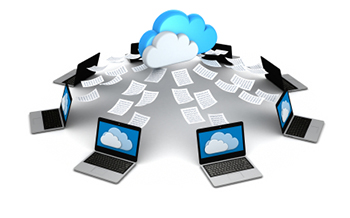
How to Trim the Fat From Data Center Costs
When smaller businesses look to cut costs, they commonly take shortcuts that are risky to their bottom line. They may go out of their way to avoid upgrading dated hardware, buying software licenses, or increasing bandwidth. In some instances, they layoff in-house IT support, or avoid hiring new help, even as the business grows. This often leads to a very cranky and disgruntled "IT guy" with a bad attitude as he or she runs around the office putting out one fire after another – feeling overburdened and underpaid.Operating even the most basic data center today means recurring operating expenses that aren't affordable for most small-to-midsize businesses.
Unfortunately, SMBs just have to accept that keeping their data center alive and kicking means significant overhead and expenses. That's just the way it is.
Or is it? There are actually several ways to reduce data center infrastructure costs without sacrificing the efficiency of your network, server, and applications, or the sanity of your IT guy.
Rent, Don't Own: A data center needs experienced people and a virtual, always-on, 24/7 staff of administrators, networking experts, database specialists, systems managers, and dedicated IT personnel monitoring the network. From an economic perspective, it's simply more logical to "rent" these workers rather than hire permanent employees.
Keep Things Remote & Energy Efficient: According to a study published by the U.S. Department of Commerce, the fastest-growing sources of U.S. energy consumption are data centers. This is due to the increased power supply required to run and cool a data center. Hardware sprawl is also a problem contributor, as most businesses have space limitations and lack the available room for any additional hardware.
Embrace Outsourcing
Both of the aforementioned cost control measures can be accomplished by outsourcing data center operating expenses. Outsourcing isn't a dirty word. Managing IT on your own is difficult and far from cost effective. Outsourcing the day-to-day IT management responsibilities through a Managed Services Provider is a strategic way to improve the efficiency of operations and dramatically cut costs.
Is it any surprise that more and more SMBs today are tapping into the full spectrum of outsourced managed services to empower their business processes and reduce overhead? Are you?

Comments
Post a Comment